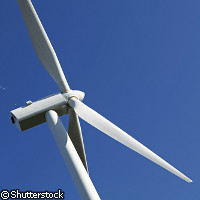MEPs demand extra funding for low carbon energy technologies
The EU should invest a minimum of EUR 2 billion a year in low carbon technologies, Members of the European Parliament (MEPs) have said in a resolution adopted on 11 March. What's more, additional funds from other public and private resources will be needed if the EU is to reach its climate change targets for 2020, the MEPs add. The resolution on investing in the development of low carbon energy technologies (SET-Plan) [Strategic Energy Technology Plan] was adopted at the European Parliament's Plenary Session in Strasbourg, France with 444 votes in favour, 88 against and 32 abstentions. The European Commission released its communication on investing in the development of low carbon energy technologies back in November 2009. Boosting funds to these technologies should not only help the EU meet its climate change targets, but should also invigorate the job market, generate income, enhance competitiveness and make the EU's energy supply more secure. In their resolution, the MEPs reiterated their request to allocate at least EUR 2 billion of the EU's annual budget to low carbon technologies, on top of existing funding from the Seventh Framework Programme (FP7) and the Competitiveness and Innovation Framework Programme (CIP). Parliamentarians called for 'the urgent establishment of a funding timetable by the Commission and the Member States of the resources they will commit to ensure that funds start flowing from 2010.' Yet more funding could come from the EUR 300 million of allowances set aside under the New Entrants Reserve of the Emissions Trading Scheme (ETS) to support carbon capture and storage (CCS) and renewable energy sources. The European Parliament also asks the European Investment Bank (EIB) to increase its lending to energy projects and calls on it to prioritise projects that will raise the viability of low carbon technologies, such as the development of smart grids and mini hydro facilities. The MEPs point out that small and medium-sized enterprises (SMEs) are behind the development of many low carbon energy technologies. With this in mind, they are calling for a 'significant share' of EU funding under the SET-Plan to be made available to SMEs and insist that these funding schemes be 'designed in an SME-friendly manner'. Importantly, the MEPS ask the Commission, in cooperation with the EIB, 'to come forward without delay, and by 2011 at the latest, with a comprehensive proposal for an instrument to finance renewable energy and energy efficiency projects and smart grids development.' The Parliamentarians are also turning their spotlight on the research base. 'The capacity of the EU research base needs to be enlarged,' they state. 'Further education and training is essential to provide the quantity and quality of human resources required to take full advantage of the new technology opportunities opening up.' In addition, the resolution highlights the importance of fostering international cooperation, particularly with emerging and developing countries, in the development and deployment of low carbon energy technologies. Elsewhere, the European Commission released a report revealing that the EU is on track to exceed its target of generating 20% of all energy consumed from renewables, as set out in the Renewable Energy Directive. According to the report, 10 of the EU's 27 Member States are likely to surpass their national targets, while a further 12 will meet their goals. Just five countries are predicted to miss their targets using domestic renewable energy sources alone. European Energy Commissioner Günther Oettinger welcomed the report, saying: 'This is a very positive sign for the environment, as it will help us to cut CO2 emissions and at the same time enhance our energy security. It is also a very positive message for our economy and our companies. It is an incentive to invest in green technology and the production of renewable energy.'

